Stelios Andreadis
From Lengthy to Lucid: A Systematic Literature Review on NLP Techniques for Taming Long Sentences
Dec 08, 2023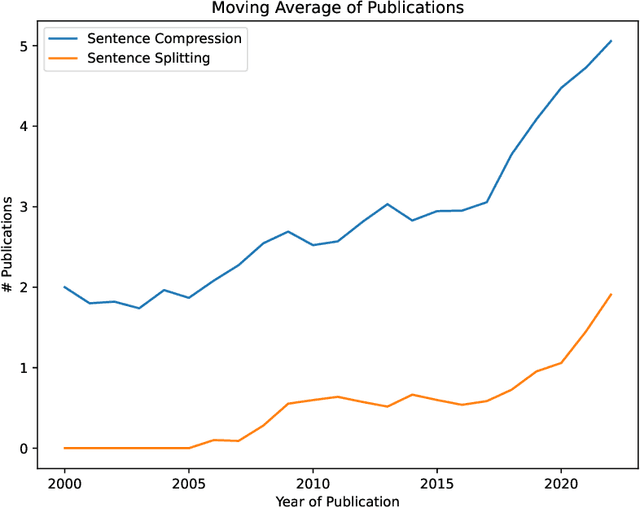
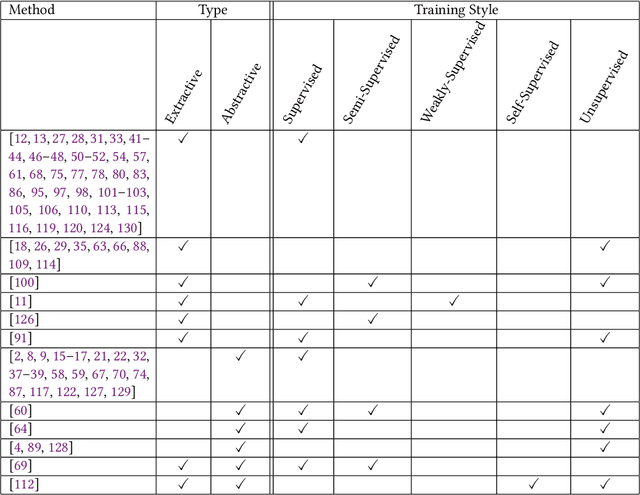
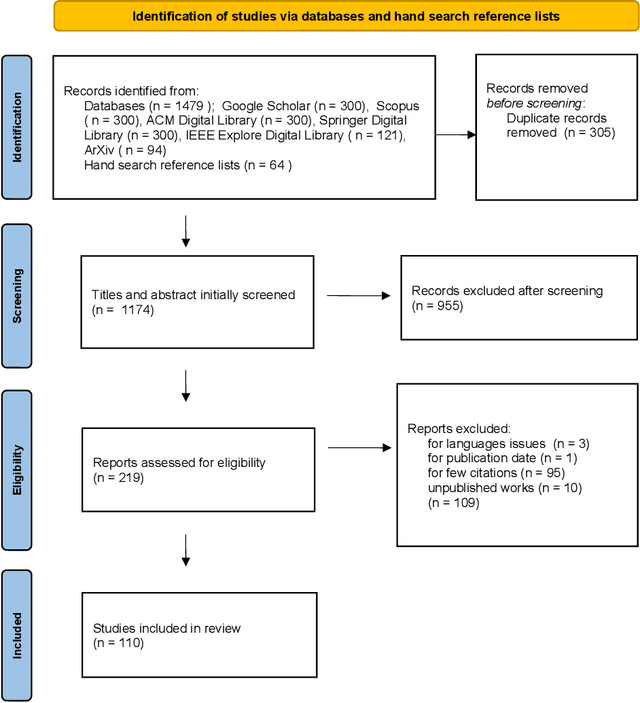

Abstract:Long sentences have been a persistent issue in written communication for many years since they make it challenging for readers to grasp the main points or follow the initial intention of the writer. This survey, conducted using the PRISMA guidelines, systematically reviews two main strategies for addressing the issue of long sentences: a) sentence compression and b) sentence splitting. An increased trend of interest in this area has been observed since 2005, with significant growth after 2017. Current research is dominated by supervised approaches for both sentence compression and splitting. Yet, there is a considerable gap in weakly and self-supervised techniques, suggesting an opportunity for further research, especially in domains with limited data. In this survey, we categorize and group the most representative methods into a comprehensive taxonomy. We also conduct a comparative evaluation analysis of these methods on common sentence compression and splitting datasets. Finally, we discuss the challenges and limitations of current methods, providing valuable insights for future research directions. This survey is meant to serve as a comprehensive resource for addressing the complexities of long sentences. We aim to enable researchers to make further advancements in the field until long sentences are no longer a barrier to effective communication.
The Tomaco Hybrid Matching Framework for SAWSDL Semantic Web Services
Oct 21, 2014
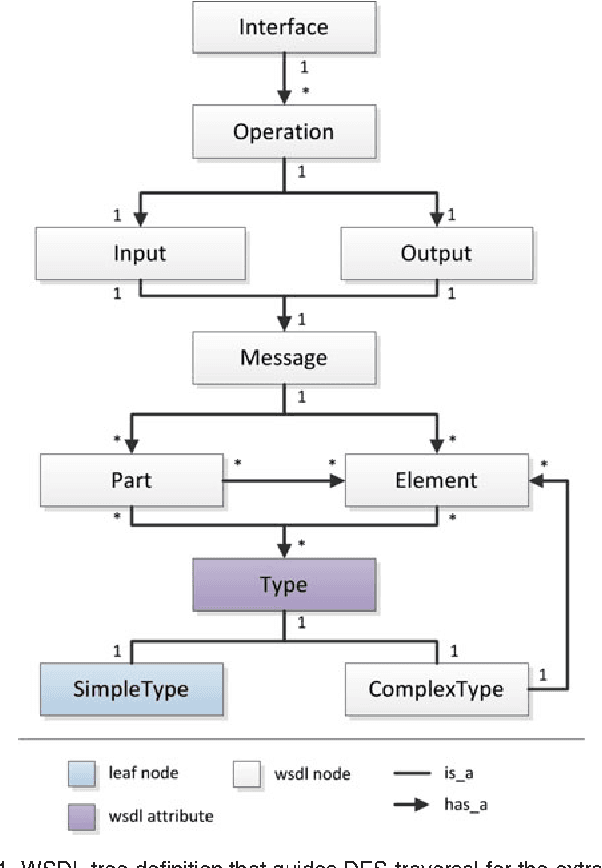

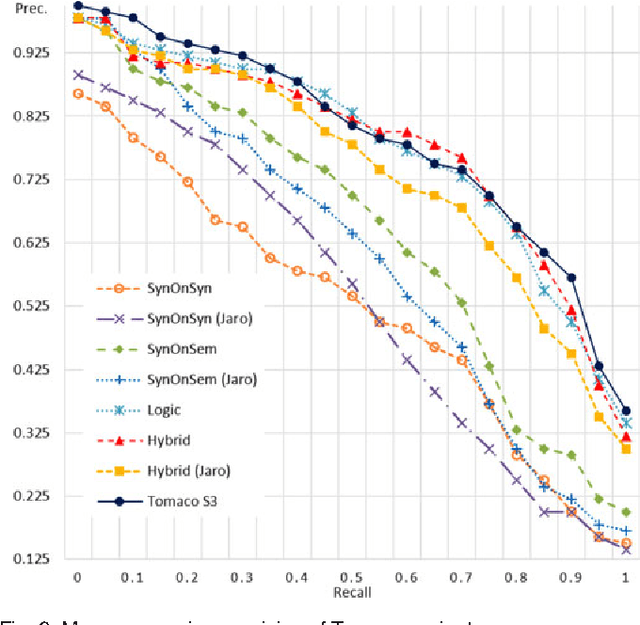
Abstract:This work aims to resolve issues related to Web Service retrieval, also known as Service Selection, Discovery or essentially Matching, in two directions. Firstly, a novel matching algorithm for SAWSDL is introduced. The algorithm is hybrid in nature, combining novel and known concepts, such as a logic-based strategy and syntactic text-similarity measures on semantic annotations and textual descriptions. A plugin for the S3 contest environment was developed, in order to position Tomaco amongst state-of-the-art in an objective, reproducible manner. Evaluation showed that Tomaco ranks high amongst state of the art, especially for early recall levels. Secondly, this work introduces the Tomaco web application, which aims to accelerate the wide-spread adoption of Semantic Web Service technologies and algorithms while targeting the lack of user-friendly applications in this field. Tomaco integrates a variety of configurable matching algorithms proposed in this paper. It, finally, allows discovery of both existing and user-contributed service collections and ontologies, serving also as a service registry.
 Add to Chrome
Add to Chrome Add to Firefox
Add to Firefox Add to Edge
Add to Edge